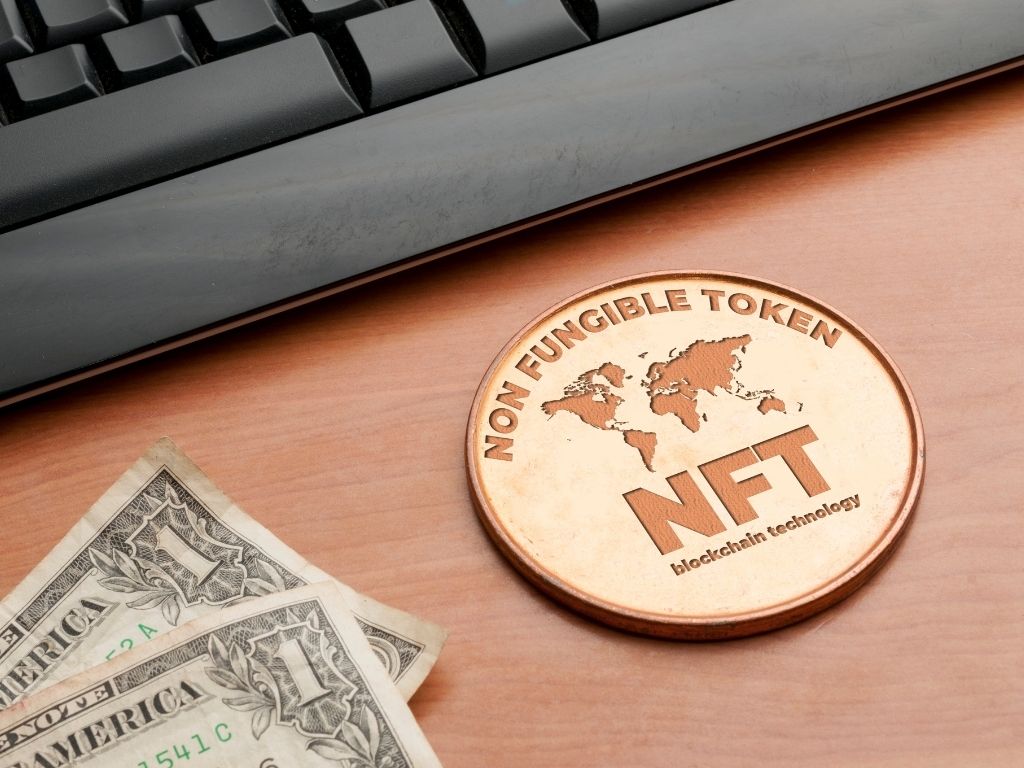Exploring the Best Use of NFTs in Real Estate Transactions in 2024
In 2024, the real estate industry is experiencing a significant shift with the rise of Non-Fungible Tokens (NFTs). These unique digital assets are changing how properties are bought, sold, and owned. With the help of blockchain technology, NFTs offer a new way to manage real estate transactions, making them faster and more secure. This article explores the various ways NFTs are impacting real estate, the challenges they face, and their potential for future growth.
Key Takeaways
- NFTs are unique digital tokens that represent ownership of real estate properties.
- Using NFTs can simplify real estate transactions by cutting out middlemen like brokers and lawyers.
- Fractional ownership allows people to invest in parts of properties instead of buying entire buildings.
- Blockchain technology ensures secure and transparent property transfers.
- Despite challenges like legal regulations, NFTs hold great promise for the future of real estate.
The Rise of NFTs in Real Estate
Understanding NFTs and Blockchain Technology
NFTs, or Non-Fungible Tokens, are unique digital assets that represent ownership of a specific item or property on a blockchain. This technology allows for secure and transparent transactions, making it easier to buy and sell real estate. The integration of NFTs in real estate is changing how we think about property ownership.
Historical Context of NFTs in Real Estate
The journey of NFTs in real estate began in 2019 when the first NFT property sale took place. A mansion was tokenized into digital tokens, allowing multiple investors to own a piece of it. Since then, the market has grown, with various platforms emerging to facilitate these transactions.
Key Benefits of Using NFTs in Property Transactions
- Simplified Transactions: NFTs can streamline the buying and selling process by cutting out middlemen like brokers and lawyers.
- Fractional Ownership: Investors can buy smaller portions of properties, making real estate investment more accessible.
- Transparency: Blockchain technology ensures that all transactions are recorded securely, reducing the risk of fraud.
| Benefit | Description |
|---|---|
| Simplified Transactions | Reduces the need for intermediaries |
| Fractional Ownership | Allows for smaller investments in properties |
| Transparency | Ensures secure and clear transaction records |
The future outlook for NFTs in 2024 suggests that the market will continue to evolve, presenting both opportunities and challenges ahead.
As we explore the rise of NFTs in real estate, it’s clear that this technology is paving the way for a new era in property transactions.
How NFTs are Transforming Property Ownership
Tokenization of Real Estate Assets
NFTs are changing how we think about owning property. By using blockchain technology, real estate can be divided into smaller parts, making it easier for more people to invest. This means you don’t have to buy a whole building anymore! Instead, you can own a fraction of it through an NFT. This opens up opportunities for many investors who might not have enough money to buy an entire property.
Fractional Ownership Through NFTs
With NFTs, you can own just a piece of a property. Here are some key points about fractional ownership:
- Lower Investment Costs: You can invest in real estate without needing a lot of money.
- Easier Transactions: Buying and selling can happen directly between people, cutting out extra fees.
- Increased Flexibility: You can trade your share of the property easily on a blockchain.
Case Studies of NFT-Based Property Sales
Several projects are already using NFTs in real estate. For example, the Kunang Kunang Tent Resort in Indonesia allows people to own shares through NFTs. This project has shown that fractional ownership can work in real life, providing dividends to its NFT holders.
The use of NFTs in real estate is not just a trend; it’s a way to make property ownership more accessible and efficient for everyone.
Legal and Regulatory Challenges
Navigating Real Estate Laws with NFTs
The introduction of NFTs in real estate brings new legal questions. It’s essential to understand how these digital tokens fit into existing property laws. For instance, will NFTs be recognized as valid proof of ownership? This uncertainty can create hurdles for buyers and sellers alike.
Compliance Issues and Solutions
To successfully use NFTs in real estate, compliance with local laws is crucial. Here are some key points to consider:
- Legal Framework: Ensure that NFTs comply with property laws.
- Documentation: Link NFTs to legally enforceable documents.
- Integration: Work with legal experts to navigate the complexities.
Future Legal Landscape for NFT Real Estate
As the market evolves, so will the legal landscape. It’s likely that regulations will adapt to accommodate NFTs. This could lead to clearer guidelines and a more structured approach to NFT transactions in real estate.
The potential of NFTs to change how we transact real estate is significant, but it requires careful navigation of legal frameworks.
| Challenge | Description |
|---|---|
| Legal Recognition | Uncertainty about how NFTs are viewed under property law. |
| Compliance | Need for adherence to existing regulations and laws. |
| Documentation Integration | Linking NFTs to enforceable legal documents is essential for validity. |
Technological Innovations and Integrations
Blockchain Platforms for Real Estate NFTs
Blockchain technology is the backbone of NFTs, providing a secure and transparent way to manage property transactions. This technology ensures that all transactions are recorded and verifiable. Some popular blockchain platforms for real estate NFTs include:
- Ethereum
- Binance Smart Chain
- Tezos
Smart Contracts in Property Transactions
Smart contracts automate the execution of agreements when conditions are met. This reduces the need for intermediaries and speeds up transactions. Key benefits include:
- Increased efficiency
- Lower transaction costs
- Enhanced security
Integration with Virtual and Augmented Reality
Virtual and augmented reality technologies are changing how properties are showcased. They allow potential buyers to experience properties in immersive ways. This integration can lead to:
- Better engagement with buyers
- More informed purchasing decisions
- A streamlined buying process
The combination of NFTs with advanced technologies like virtual reality is paving the way for a new era in real estate transactions.
In summary, the integration of blockchain, smart contracts, and immersive technologies is revolutionizing the real estate market, making it more efficient and accessible. The future of property transactions looks promising with these innovations.
Investment Opportunities and Risks
Evaluating NFT Real Estate Investments
Investing in NFTs for real estate can be exciting. They offer increased liquidity and can make property investment more accessible. Here are some key points to consider:
- Higher Returns: NFTs can provide better returns compared to traditional real estate investments.
- Diversity: Investors can explore various types of properties through NFTs.
- Lower Costs: By cutting out middlemen, NFTs can reduce transaction costs significantly.
Risk Factors and Mitigation Strategies
While there are opportunities, there are also risks involved. Here are some common risks and how to manage them:
- Market Volatility: The NFT market can be unpredictable. Stay informed about market trends.
- Regulatory Changes: Laws around NFTs are still evolving. Keep an eye on legal updates.
- Security Issues: Ensure that the platforms you use are secure to protect your investments.
Future Trends in NFT Real Estate Investments
The future looks promising for NFT real estate. Here are some trends to watch:
- Increased Adoption: More investors are likely to enter the NFT real estate market.
- Technological Advancements: Innovations in blockchain technology will enhance security and efficiency.
- Global Market Expansion: NFTs could open up international real estate investments to a broader audience.
The potential for NFTs in real estate is vast, but understanding both the opportunities and risks is crucial for success.
| Opportunity | Description |
|---|---|
| Increased Liquidity | Easier buying and selling of properties |
| Enhanced Transparency | Clear records of ownership and transactions |
| Accessibility | More people can invest in real estate through fractional ownership |
Practical Applications and Case Studies
Examples of Successful NFT Real Estate Projects
NFTs are changing how we think about property ownership. Here are some notable examples:
- Virtual Real Estate: Platforms like Decentraland allow users to buy and sell virtual land using NFTs.
- Tokenized Physical Properties: Some companies are selling shares of real properties as NFTs, making it easier for people to invest.
- Fractional Ownership: NFTs enable multiple investors to own a piece of a property, lowering the barrier to entry.
Lessons Learned from Early Adopters
From the experiences of those who have used NFTs in real estate, we can gather valuable insights:
- Market Research is Key: Understanding the market helps in making informed decisions.
- Technology Matters: Choosing the right blockchain platform can make a big difference.
- Legal Compliance: Navigating laws is crucial to avoid future issues.
Potential for Future Developments
The future looks bright for NFTs in real estate. Here are some possibilities:
- Increased Accessibility: More people could own property through fractional ownership.
- Enhanced Security: Blockchain technology can provide better security for transactions.
- Integration with Other Technologies: Combining NFTs with virtual reality could create immersive property tours.
In summary, NFTs are paving the way for a new era in real estate. As technology evolves, we can expect even more innovative applications that will reshape how we think about property ownership and investment.
Steps to Implementing NFTs in Real Estate
Initial Planning and Market Research
To successfully implement NFTs in real estate, start with thorough market research. This helps you understand trends and the needs of potential buyers. Here are some key steps:
- Identify target audience preferences.
- Analyze current market trends.
- Assess regulatory requirements in your area.
Choosing the Right Technology Partners
Selecting the right technology partners is crucial. Collaborate with experts who understand both blockchain and real estate. Consider:
- Their experience with NFT projects.
- The technology stack they use.
- Their ability to provide ongoing support.
Executing and Managing NFT Real Estate Projects
Once you have a plan and partners, it’s time to execute. This involves:
- Developing a clear tokenization strategy for your properties.
- Creating smart contracts to manage transactions securely.
- Ensuring compliance with legal regulations.
Implementing NFTs in real estate can simplify transactions and reduce costs, making it an exciting opportunity for investors.
By following these steps, you can navigate the complexities of real estate tokenization effectively. Remember, real estate tokenization can open new doors for investment and ownership.
Conclusion
In summary, using Non-Fungible Tokens (NFTs) in real estate is a game changer. They can change how we think about owning, investing in, and managing properties. By turning real estate into unique digital tokens, NFTs allow for shared ownership, making it easier for more people to invest. This new way of handling property can make buying and selling faster and more transparent. However, to make NFT real estate projects successful, it’s important to do thorough research, follow the rules, choose the right technology, and create a good experience for users. Working with a skilled NFT real estate company can help ensure everything runs smoothly and safely. As technology keeps advancing and more people start using NFTs, we can expect big changes in the real estate world. Embracing NFTs opens up new chances for everyone, making real estate investment more open and efficient.
Frequently Asked Questions
What are NFTs and how do they work in real estate?
NFTs, or Non-Fungible Tokens, are unique digital items that can represent ownership of real estate. They use blockchain technology to keep track of who owns what, making buying and selling properties easier.
What are the benefits of using NFTs in property transactions?
Using NFTs can make property deals faster and cheaper. They help cut out middlemen like brokers, and the blockchain makes sure everything is secure and transparent.
Can I buy a part of a property with NFTs?
Yes! NFTs allow for fractional ownership, meaning you can buy a small piece of a property instead of the whole thing. This makes real estate investing more affordable.
What challenges do NFTs face in the real estate market?
NFTs in real estate face legal and regulatory challenges. There are also issues with the technology and a need for more people to understand how it works.
How can I invest in NFT real estate?
To invest in NFT real estate, you should do some research on the market, find trustworthy platforms, and understand the risks involved before jumping in.
What does the future hold for NFTs in real estate?
The future looks bright for NFTs in real estate! As more people learn about them and technology improves, we may see even more innovative uses and wider acceptance.
Stay informed with daily updates from Blockchain Magazine on Google News. Click here to follow us and mark as favorite: [Blockchain Magazine on Google News].
Get Blockchain Insights In Inbox
Stay ahead of the curve with expert analysis and market updates.
latest from tech
Disclaimer: Any post shared by a third-party agency are sponsored and Blockchain Magazine has no views on any such posts. The views and opinions expressed in this post are those of the clients and do not necessarily reflect the official policy or position of Blockchain Magazine. The information provided in this post is for informational purposes only and should not be considered as financial, investment, or professional advice. Blockchain Magazine does not endorse or promote any specific products, services, or companies mentioned in this posts. Readers are encouraged to conduct their own research and consult with a qualified professional before making any financial decisions. The featured image used is just a creative depiction of the title and it does not intend to hurt sentiments of any person or institution. If it hurts anyone sentiments, please do not hesitate to reach out to Blockchain Magazine.

 Bitcoin
Bitcoin  Ethereum
Ethereum  XRP
XRP  Tether
Tether  Solana
Solana  USDC
USDC  Dogecoin
Dogecoin  Cardano
Cardano  Lido Staked Ether
Lido Staked Ether  TRON
TRON  Wrapped Bitcoin
Wrapped Bitcoin  Chainlink
Chainlink  Wrapped stETH
Wrapped stETH  Avalanche
Avalanche  Sui
Sui  Stellar
Stellar  Hedera
Hedera  Toncoin
Toncoin  Shiba Inu
Shiba Inu  Hyperliquid
Hyperliquid  LEO Token
LEO Token  Litecoin
Litecoin  Bitget Token
Bitget Token  WETH
WETH  USDS
USDS  Polkadot
Polkadot  Bitcoin Cash
Bitcoin Cash  Ethena USDe
Ethena USDe  Wrapped eETH
Wrapped eETH  Uniswap
Uniswap  MANTRA
MANTRA  Ondo
Ondo  Pepe
Pepe  Monero
Monero  Aave
Aave  NEAR Protocol
NEAR Protocol  WhiteBIT Coin
WhiteBIT Coin  Official Trump
Official Trump  Mantle
Mantle  Aptos
Aptos  Dai
Dai  Internet Computer
Internet Computer  Ethereum Classic
Ethereum Classic  Bittensor
Bittensor  Cronos
Cronos  OKB
OKB  POL (ex-MATIC)
POL (ex-MATIC)  Gate
Gate 






